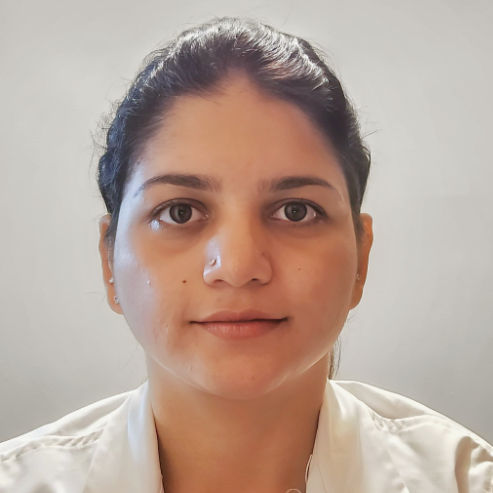Mumps: Overview of Symptoms and Treatment
Discover mumps, its symptoms, causes, and treatment options. Learn how this viral infection spreads, ways to manage discomfort, and methods of prevention.

Written by Dr. J T Hema Pratima
Reviewed by Dr. Dhankecha Mayank Dineshbhai MBBS
Last updated on 13th Jan, 2026

Mumps is a contagious viral infection that primarily affects the salivary glands, causing swelling and discomfort. While it is more common in children, adults can also get infected. The good news is that mumps is preventable with vaccination, and most people recover fully with proper care.
In this article, we’ll discuss the symptoms, causes, treatment, and prevention of mumps in simple terms so that you can recognize the condition early and take the necessary steps to manage it.
What is Mumps?
Mumps is caused by the mumps virus, which spreads through saliva or mucus from an infected person’s mouth, nose, or throat. It most commonly affects the parotid glands (the salivary glands located near the ears), leading to the classic "chipmunk cheeks" appearance due to swelling.
While mumps was once very common, widespread vaccination has significantly reduced cases. However, outbreaks can still occur, especially in close-contact settings like schools or colleges.
Consult a Top Specialist
Symptoms of Mumps
Not everyone with mumps shows symptoms, but when they do, they usually appear 2–3 weeks after exposure to the virus. Common signs include:
Swollen, painful salivary glands (usually on one or both sides of the face)
Fever (often low-grade)
Headache
Muscle aches
Fatigue and weakness
Loss of appetite
Pain while chewing or swallowing
Some people may also experience:
Ear pain (due to swollen glands)
Dry mouth (because of reduced saliva production)
In rare cases, mumps can lead to complications such as:
Swelling of the testicles or ovaries (which may affect fertility in rare cases)
Meningitis (inflammation of the brain and spinal cord membranes)
Deafness (very rare)
If you or your child experience severe symptoms like high fever, stiff neck, confusion, or severe abdominal pain, seek medical help immediately.
How Does Mumps Spread?
Mumps is highly contagious and spreads through:
Coughing or sneezing (respiratory droplets)
Sharing utensils, cups, or food with an infected person
Close contact (talking, kissing, or playing together)
An infected person can spread the virus a few days before symptoms appear and up to five days after swelling begins. This is why vaccination and good hygiene are crucial in preventing outbreaks.
How is Mumps Diagnosed?
Doctors usually diagnose mumps based on symptoms and physical examination. Sometimes, they may recommend:
Blood tests (to check for antibodies)
Swab tests (from the throat or inside of the cheek)
Urine tests (in some cases)
If you suspect mumps, consult a doctor for proper diagnosis, especially if you or your child hasn’t been vaccinated.
Treatment for Mumps
Since mumps is a viral infection, antibiotics don’t work against it. Treatment focuses on relieving symptoms and includes:
1. Home Care & Remedies
Rest: Helps the body fight the infection.
Hydration: Drink plenty of fluids (water, herbal teas, soups).
Pain relief: Over-the-counter painkillers like paracetamol can help with fever and discomfort (avoid aspirin in children).
Warm or cold compresses: Can ease swollen glands.
Soft foods: Eating foods like yogurt, mashed potatoes, or soups reduces pain while chewing.
2. Medical Care
Most cases resolve on their own within 1–2 weeks, but if complications arise (like severe pain, high fever, or meningitis), hospitalization may be needed.
Preventing Mumps
The MMR (Measles, Mumps, Rubella) vaccine is the best way to prevent mumps. It is given in two doses:
First dose: At 12–15 months of age
Second dose: At 4–6 years
Adults who haven’t been vaccinated or are unsure about their immunity should consult a doctor about getting the vaccine, especially if they are at higher risk (healthcare workers, college students, or travelers).
Other Preventive Measures:
Avoid close contact with infected individuals.
Wash hands frequently with soap and water.
Cover mouth and nose when coughing or sneezing.
Don’t share food, drinks, or utensils.
When to See a Doctor?
Consult a healthcare provider if:
Swelling lasts longer than 7 days.
Fever is above 103°F (39.4°C).
Severe headache, neck stiffness, or confusion occurs (signs of meningitis).
Testicular or abdominal pain develops.
If you suspect mumps or need vaccination advice, you can book a consultation with a doctor on Apollo 24|7 for expert guidance.
Final Thoughts
Mumps is a preventable disease, and vaccination is the best protection. While most cases are mild, complications can occur, so early recognition and care are essential. If you or your child shows symptoms, follow home care tips and consult a doctor if needed. Stay informed, stay protected, and prioritize vaccinations to keep yourself and your loved ones safe!
Consult a Top Specialist
Consult a Top Specialist

Dr. Sougata Kumar
General Practitioner
8 Years • MBBS
East Midnapore
VIVEKANANDA SEBA SADAN, East Midnapore

Dr. Swagato Podder
General Practitioner
5 Years • MBBS
Kolkata
GRD POLYCLINIC, Kolkata
Dr. Sujay P R
General Physician/ Internal Medicine Specialist
3 Years • MBBS
Bengaluru
PRESTIGE SHANTHINIKETAN - SOCIETY CLINIC, Bengaluru

Dr Bhumika Lalwani
General Surgeon
4 Years • MBBS MS
Bengaluru
PRESTIGE SHANTHINIKETAN - SOCIETY CLINIC, Bengaluru

Dr. Imtiyaz Khan
General Physician/ Internal Medicine Specialist
6 Years • MBBS
Bengaluru
Apollo Clinic, Sarjapur Road, Bengaluru
